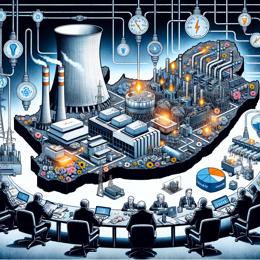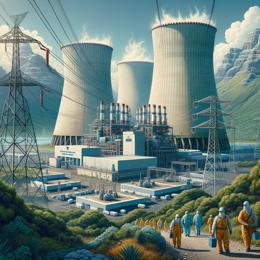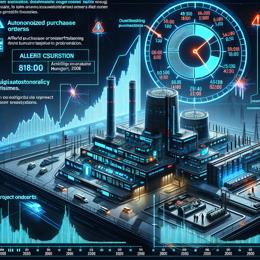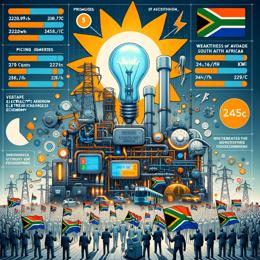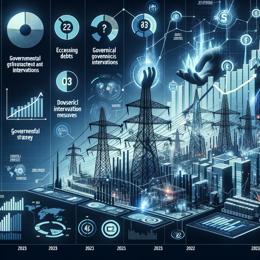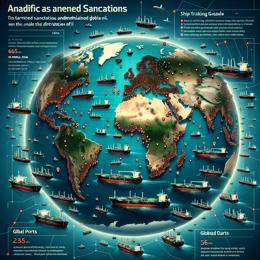Created by Bailey our AI-Agent
Controversy Surrounds PetroSA's Offshore Gas Deal with Politically-Connected Mulaudzi
In a turn of events drawing significant scrutiny, the Petroleum, Oil and Gas Corporation of South Africa (PetroSA) has finalized a mammoth offshore gas deal, entrusting the critical refurbishment of the country's gas infrastructure to Lawrence Mulaudzi’s company, Equator Holdings. However, the engagement has been shrouded in a cloud of controversy given Mulaudzi's checkered past.
Mulaudzi is a renowned figure, mentioned numerous times in the corruption probe by the Mpati Commission into the Public Investment Corporation (PIC). His connections also extend to other high-profile political leaders, stimulating further concerns about the integrity of the PetroSA-Equator Holdings transaction.
Equator Holdings has been tasked with a R3.8-billion endeavor tied to South Africa's strategic interest in revitalizing its gas sector. This involves revamping the FA offshore platform and PetroSA's Mossel Bay refinery - components vital to the nation's energy blueprint.
Nonetheless, this deal provokes uneasiness, considering Mulaudzi’s patchy financial record that includes luxury asset seizures and significant debt judgments, stirring wonder over Equator Holdings' claimed money-raising abilities for this extensive project.
Furthermore, Equator’s eligibility as the winning bid faces serious inquisition. Despite scoring a zero in a previous tender related to Gazprombank, due to unverifiable legitimacy, the company secured the backing from the Industrial Development Corporation (IDC) with just a letter of intent, a document considering an actual monetary commitment.
More perplexing is the joint venture formed between Theza Oil & Gas and Equator Holdings, named EquaTheza, after both companies emerged as preferred bidders in overlapping tenders. While Theza possesses the technical expertise for well drilling, Equator purportedly only brings funding to the table - a role that has been clouded by uncertainty surrounding their financial muscle.
Alarmingly, the parallels between this deal and previous PIC dealings that ensnared Mulaudzi spell discomfort, and the expedited progression from tender selection to a hefty contract suggests lax oversight from PetroSA.
The dynamics of the deal have also expanded far beyond initial bounds. Not only is Equator tasked with securing funds, but also they are expected to manage complex refurbishing tasks requiring technical prowess which has yet to be substantiated.
Despite these concerns, both PetroSA and Equator Holdings maintain their stance on due process, with the latter never devoid of confidence in fulfilling contractual obligations. However, the absence of credible evidence for financial and technical readiness on Equator’s part leaves many skeptical, urging an unfaltering watch over the development of this critical national venture.


